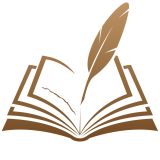In this article:
What is a Literature Degree?
A literature degree is a college program that focuses on reading, analyzing, and interpreting written works from different time periods and cultures. Students study novels, poetry, plays, and essays to understand themes, storytelling techniques, and historical influences. The degree helps develop strong reading, writing, and critical thinking skills by exploring different perspectives and literary styles.
In this program, students take courses on classic and modern literature, literary theory, and writing analysis. They learn how to break down complex texts, discuss deeper meanings, and compare different authors and genres. Some programs also include creative writing, film studies, or cultural studies, allowing students to explore how literature connects with other forms of storytelling.
Program Options
Here are some common program options for a literature degree:
- Bachelor of Arts (B.A.) in Literature: This undergraduate program provides a broad foundation in literary studies, covering a range of genres, time periods, and authors. Students typically take courses in literary analysis, theory, and specialized topics like British, American, or world literature. This program develops critical thinking, writing, and research skills while encouraging exploration of various literary traditions.
- Master of Arts (M.A.) in Literature: A graduate-level program that allows students to deepen their knowledge of literary theory and analysis. The M.A. program often includes advanced coursework in specific literary periods or genres, and students may also conduct original research and write a thesis. This degree is ideal for those who want to pursue careers in academia, writing, or literary criticism.
- Doctor of Philosophy (Ph.D.) in Literature: This advanced degree focuses on original research in the field of literature. Ph.D. students typically specialize in a particular area of literary study, such as a specific genre, period, or author. The program involves extensive research, coursework, and the completion of a dissertation. Graduates often pursue careers in academia, research, or high-level literary analysis.
Some programs offer concentrations or specializations within a Literature degree, such as:
- Comparative Literature: Focuses on studying literature across different cultures and languages.
- English Literature: Specializes in works written in English, often focusing on British, American, or Commonwealth literature.
- World Literature: Explores literature from various global perspectives, including non-Western traditions.
- Creative Writing: Combines literary analysis with creative writing workshops, allowing students to develop their own writing alongside studying literature.
Skills You’ll Learn
Here are the key skills you can learn in a literature degree program:
- Critical Thinking and Analysis: Literature students learn to read texts carefully and think critically about their meanings, themes, and contexts. This involves analyzing characters, plot structures, and writing styles, as well as considering the social, historical, and cultural factors that influence the work.
- Advanced Writing Skills: Students develop strong writing abilities, learning to express complex ideas clearly and effectively. They write essays, research papers, and analytical pieces that require constructing well-supported arguments, proper structuring, and precise use of language.
- Research Skills: Literature programs teach students how to conduct in-depth research using various sources. They learn to gather, evaluate, and synthesize information to support their analysis and interpretations of literary works.
- Communication Skills: Through discussions, presentations, and written assignments, students enhance their verbal and written communication skills. They learn how to articulate their ideas and engage in thoughtful dialogue with others.
- Cultural Awareness and Interpretation: Literature students gain an understanding of different cultures, histories, and perspectives through the study of global literary traditions. They develop the ability to interpret texts from diverse viewpoints and appreciate the connections between literature and society.
- Attention to Detail: Close reading of texts hones students’ ability to notice subtleties in language, tone, and structure. This attention to detail is crucial for both literary analysis and effective communication.
What Can You Do with a Literature Degree?
A literature degree opens up a variety of career paths, many of which leverage strong writing, research, and analytical skills. Here are some careers you can pursue:
- Writer: Use your writing skills to create content in various forms, such as novels, articles, essays, or blogs. Writers may work independently or for publications, websites, or companies.
- Editor: Work in publishing, media, or other industries, editing and refining written content for clarity, style, and accuracy. Editors may work on books, magazines, websites, or corporate communications.
- Professor: Teach literature, writing, or related subjects at the college or university level. This usually requires a master’s degree or Ph.D. in literature or a related field.
- Journalist: Write news stories, articles, and features for newspapers, magazines, or online platforms. Journalists research and report on current events, culture, and various topics of interest.
- Copywriter: Create engaging and persuasive content for marketing and advertising purposes. Copywriters write advertisements, product descriptions, and promotional materials for businesses.
- Librarian: Work in public, academic, or special libraries, helping patrons access information and resources. A master’s degree in library science is usually required.
- Publisher: Work in the publishing industry, managing the acquisition, editing, and production of books and other written materials. This role often involves working with authors, editors, and marketing teams.
- Content Writer: Write informative and engaging content for websites, blogs, and digital platforms. Content writers create articles, product descriptions, and other forms of written content that attract and inform readers.
- Public Relations Specialist: Use your writing and communication skills to craft press releases, speeches, and other materials that represent an organization to the public and the media.
- Technical Writer: Write manuals, guides, and other technical documentation that explain complex information in a clear and understandable way. Technical writers often work in fields like technology, engineering, or healthcare.

